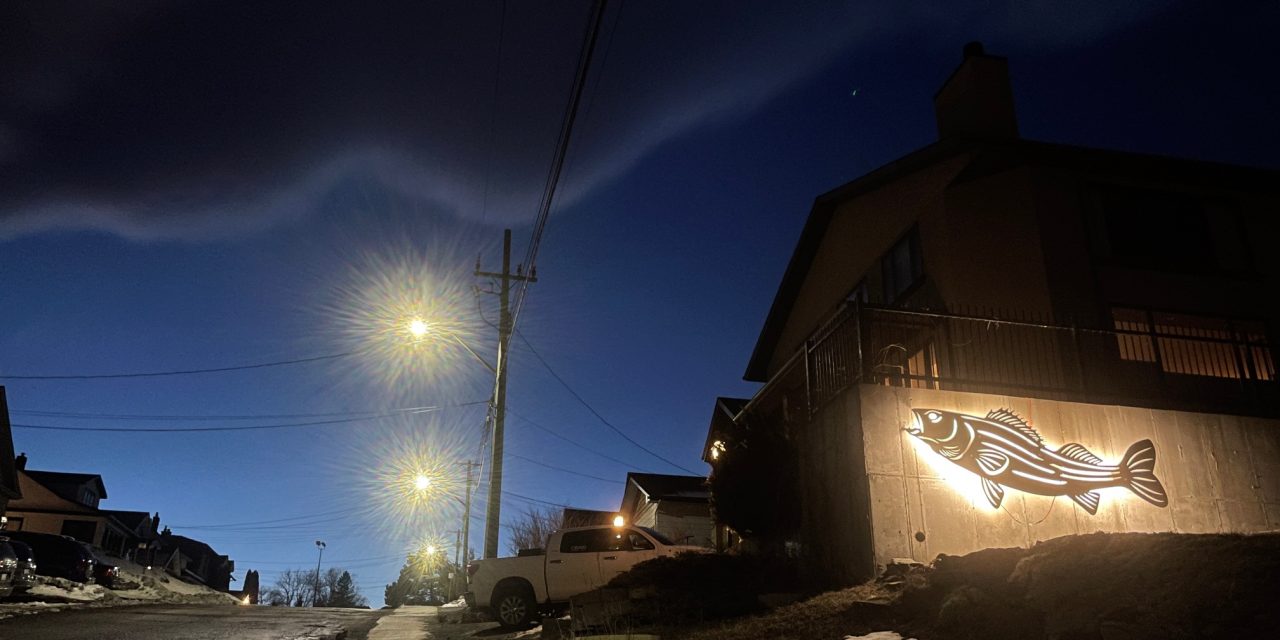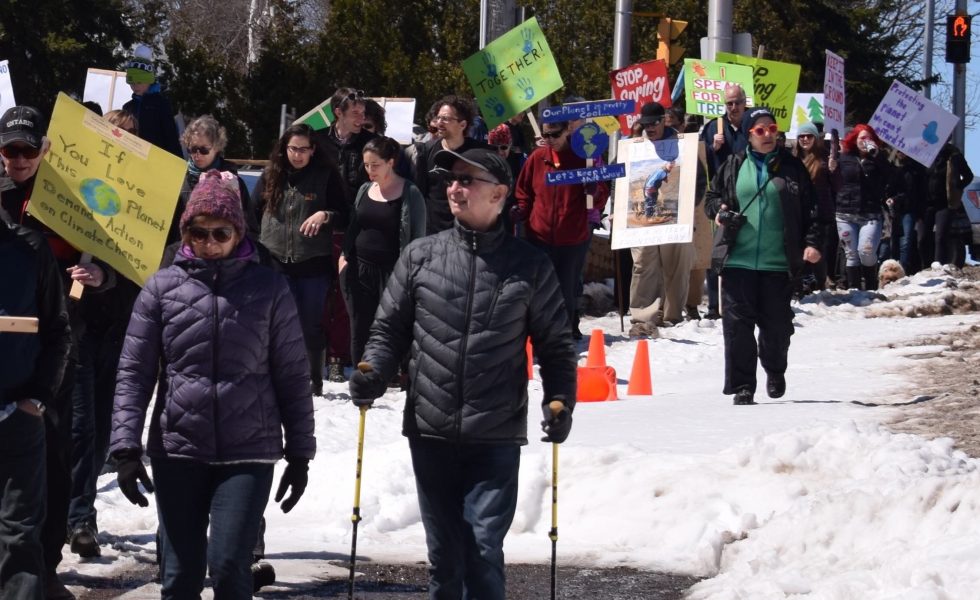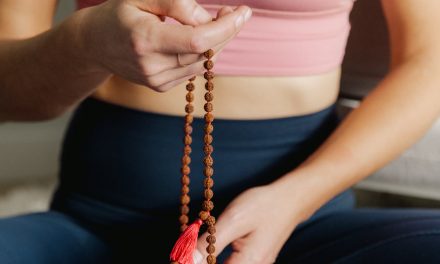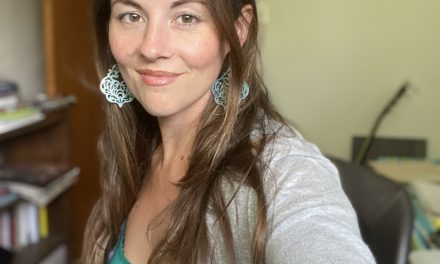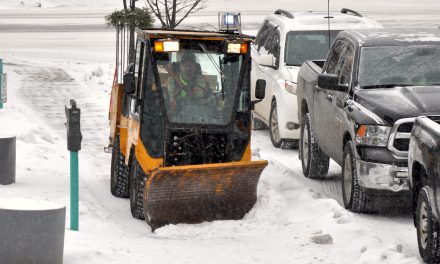Editorial and photo by Marlene Wandel
There’s a new fish in the neighbourhood. It’s been there for months, but we’re just starting to talk about it. To be clear, something to talk about was never the problem; in a neighbourhood of parks and a view of the Sleeping Giant, it was not uncommon to catch up with the neighbours for a bit of sidewalk chit-chat. But the double-barrelled insults of a relentless pandemic compounded by an endless winter knocked down our social mojo for what felt like forever. Who knows how long that fish hung there, waiting to be noticed, to be talked about, while we cowered indoors?
It feels like waking up from a too-long sleep to find a world irrevocably changed. What remains after the lockdowns, this winter of discontent, is somehow less. While gathering was taboo, our spaces to do so disappeared; the biggest neighbourhood gathering we experienced in the last two years was the cremation of the Finlandia. While the symbol burning felt like the last straw, the community space was already lost. While there is hope for the new development to bring life into that space, what is remembered is that the loss of the Hoito and the consequent loss of the Finlandia to the community at large was also a COVID loss, long before the fire. Around the corner, the Lakehead Unitarian Fellowship Hall also quietly disappeared as a community space while we weren’t paying attention to things outside our sphere of fear.
How did COVID so diminish our sense of community? And how do we grow it back? How do we recover from a time when so many of us feared another’s breath? How do we return to seeing a smile as a gesture of friendship, not as a worrisome reminder that someone isn’t wearing a mask? We were all supposed to be in this together, but the one thing we never were was together. We all knew we missed live music and community events, but the collateral losses of happenstance encounters with friends and acquaintances were surprisingly deep.
It’s true the COVID pandemic isn’t over, in the sense that COVID isn’t gone; it does feel like that whack-a-mole cycle of lockdowns and restrictions that killed our hope and joy for two years might finally have receded. This spring, it doesn’t seem pointless to make plans, and the things that once drew us out of our houses and out of ourselves are back on the calendar. The antidote to this inertia of loneliness is togetherness. This spring, we can get together and sweep the neighbourhood for the detritus of winter and COVID and start to reclaim our connections to each other. After two years of clandestine conversations across the back fence, it’s time to meet the neighbours out front again. On a fine Wednesday in summer we can even walk down to Summer in the Parks, together. Just like we used to.


